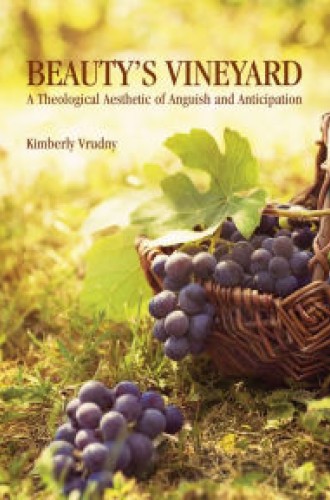Simultaneously a powerful lesson in the form of beauty and a personal memoir of faith, this book articulates a life of compassion, hardship, and hope. Kimberly Vrudny, who teaches theology at the University of St. Thomas in St. Paul, Minnesota, delves into the puzzle of the beautiful, attending particularly to the ethical and social dimensions of divine beauty and earthly beauty. She teaches us to view the world in a way that is sensitive to beauty, uniqueness, justice, and loss.
Vrudny carefully and clearly introduces what beauty is for theology. She names beauty as both a reference to who God is—the highest beauty, Beauty itself—and a reference to the created world. Vrudny’s interest rests in the dialogue between these two forms of beauty, especially as she reflects on earthly beauty’s nature as a fragile and breakable experience. On the one hand there is creation’s imitation of God and God’s gentle nurturing of creation’s beauty, and on the other there is the delicate matter of human freedom, human limitation, human striving. Vrudny seeks to understand how God can speak through what is soft and breakable, even broken, and how human beings come to speak through it too.
Scholars will find in this book a rich interweaving of the history of ideas alongside key theological principles. Vrudny mixes biblical historical criticism with thinkers like Thomas Aquinas and Dorothy Day, continually allowing for more than one genre to intermingle. She generates creative interpretations of scripture alongside the classical interpretations from Judaism and Christianity. Shalom and hesed—God’s peace and God’s loving-kindness—are two of the book’s key themes, both drawn from the prophetic literature of the Old Testament.






